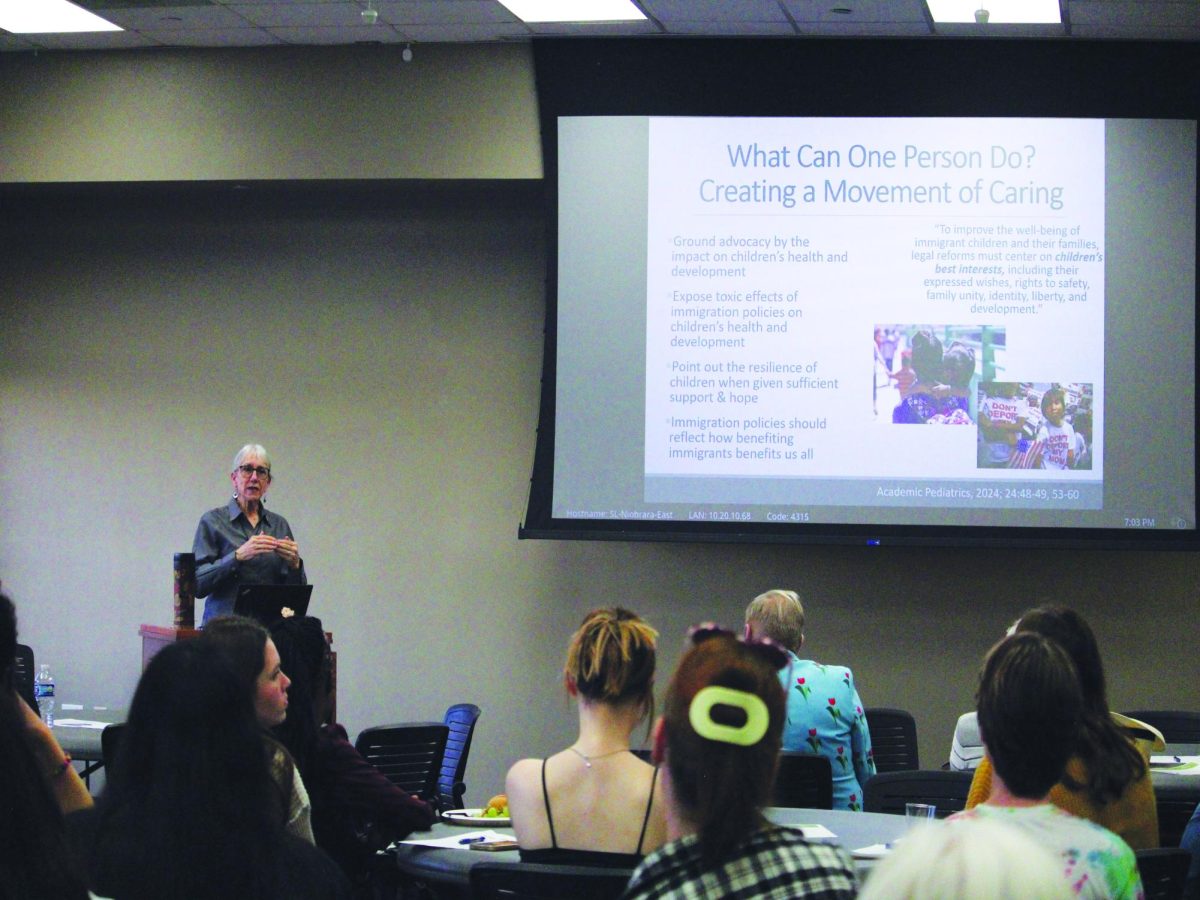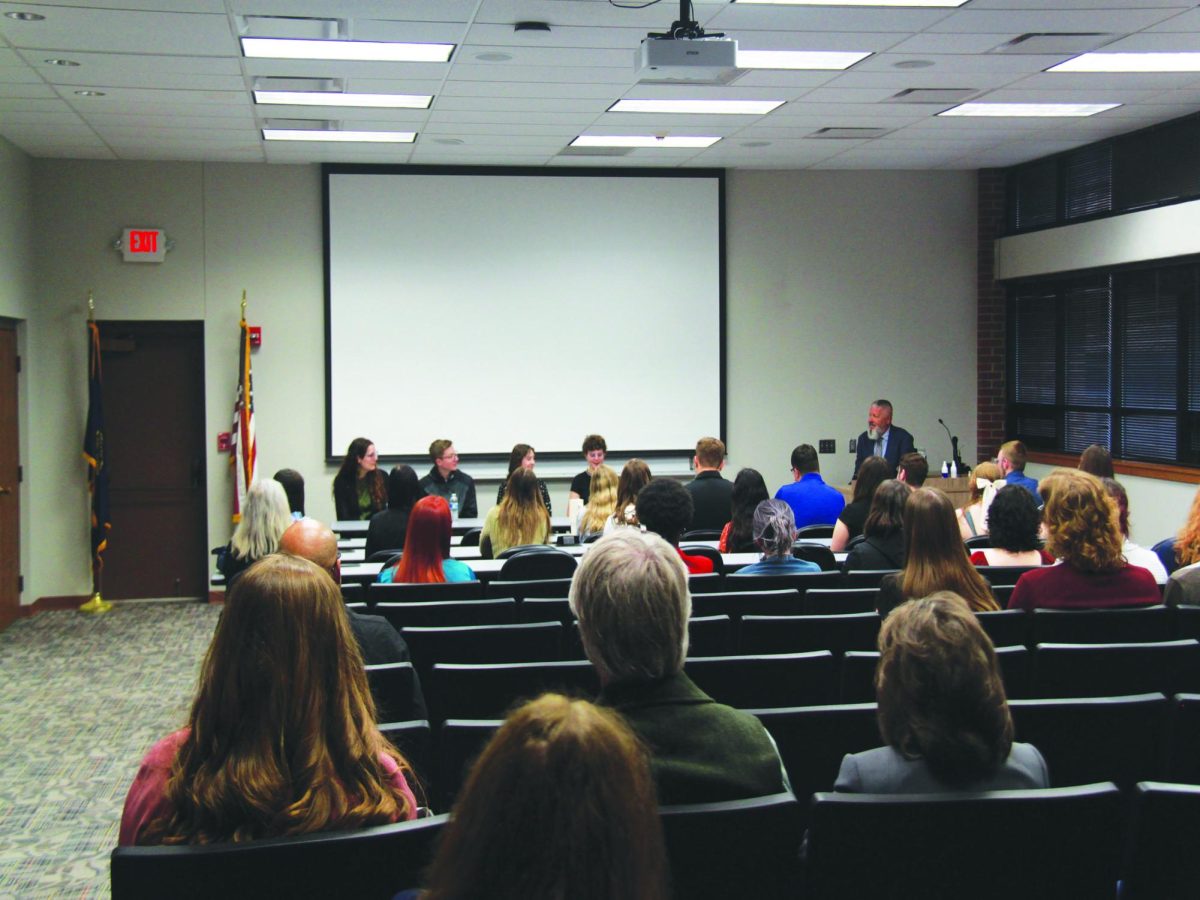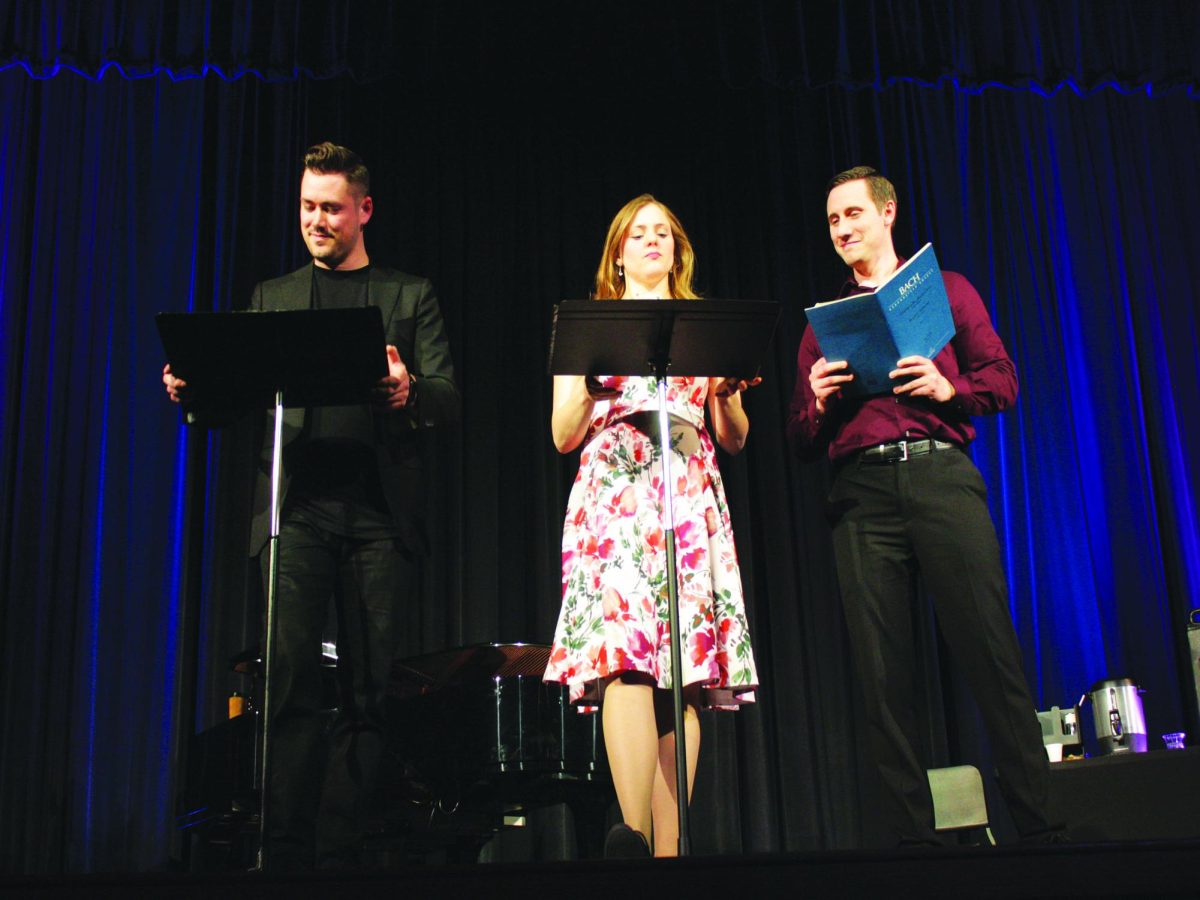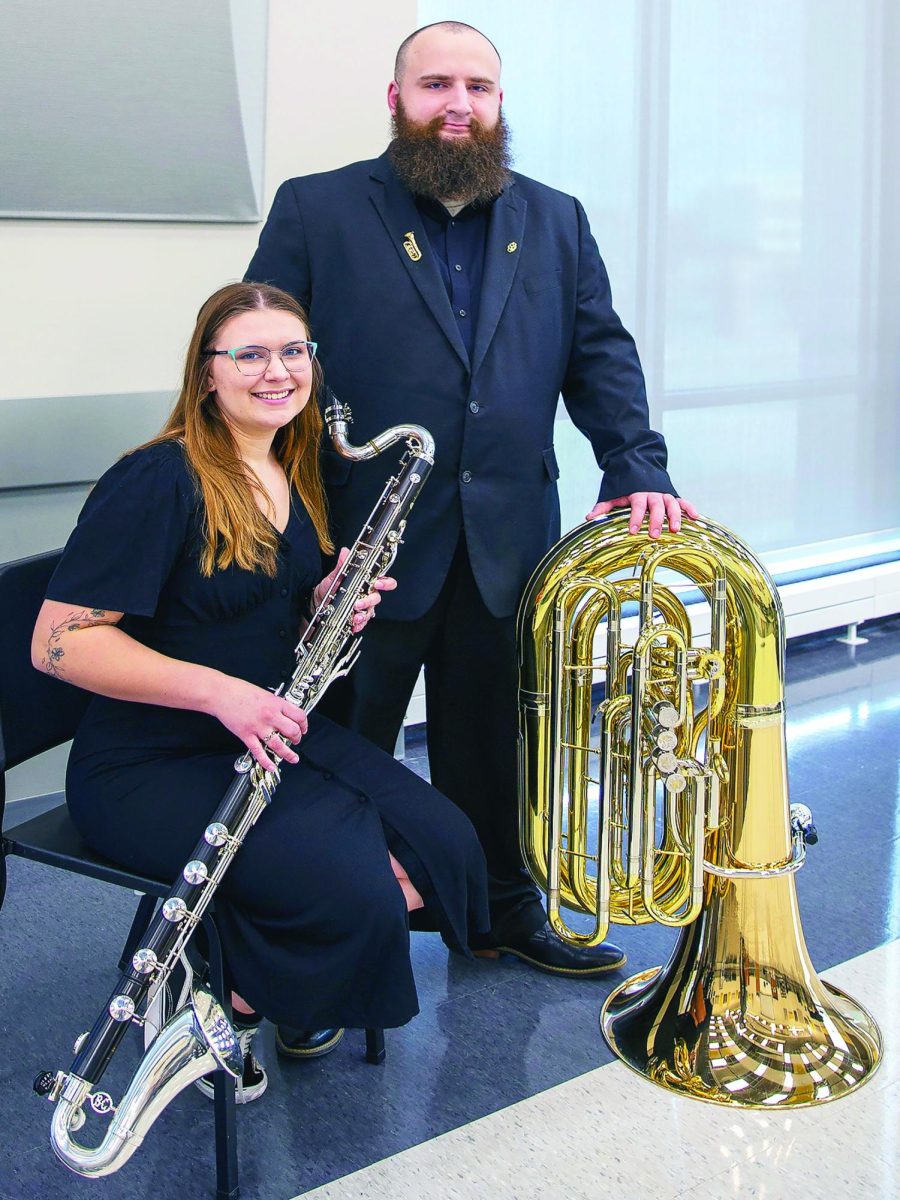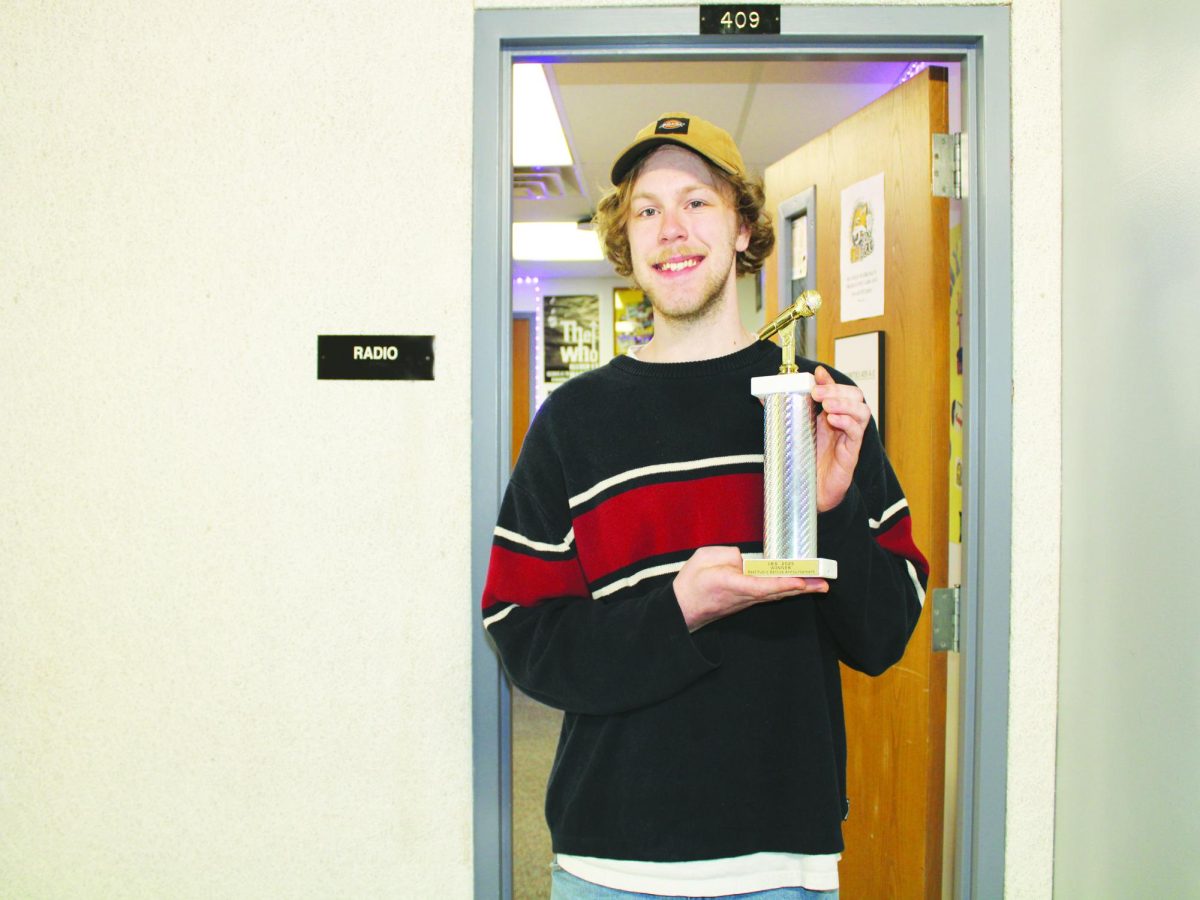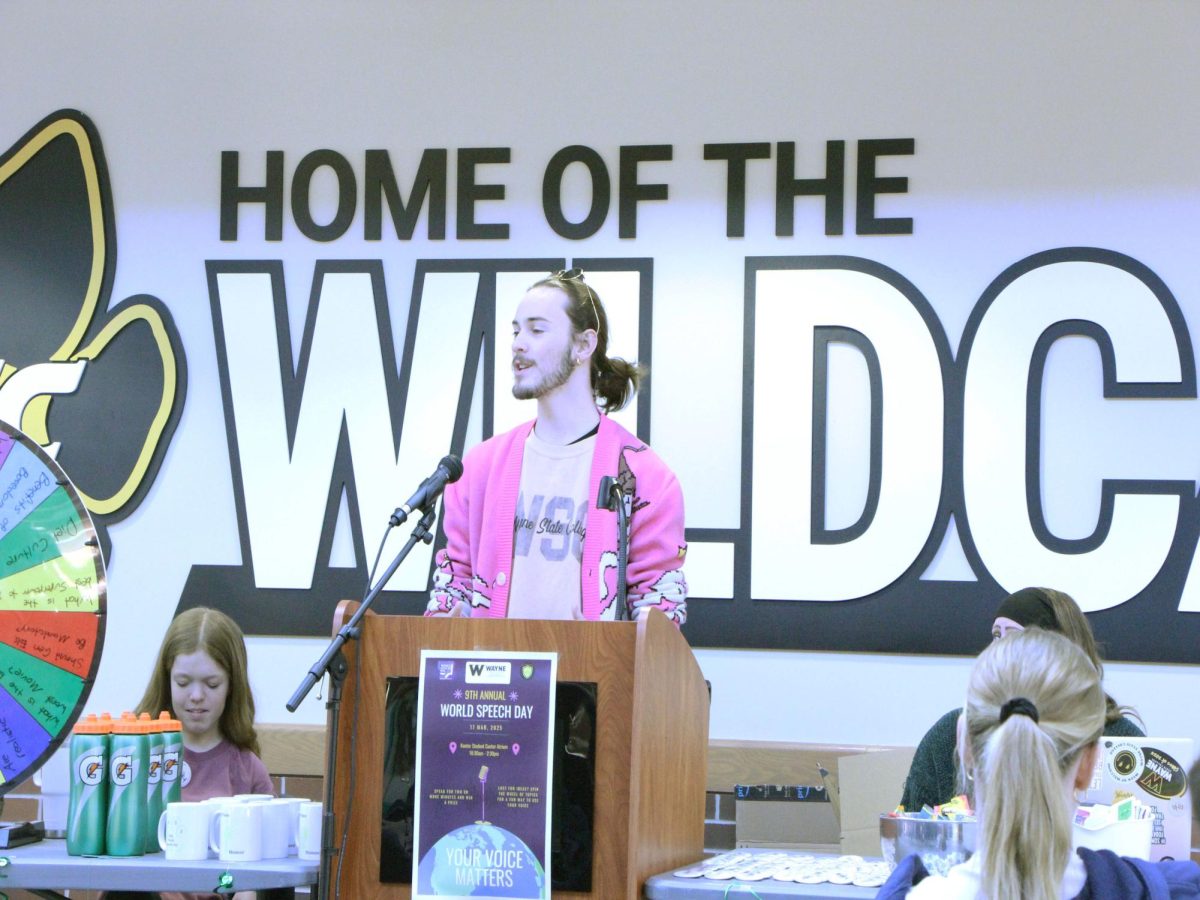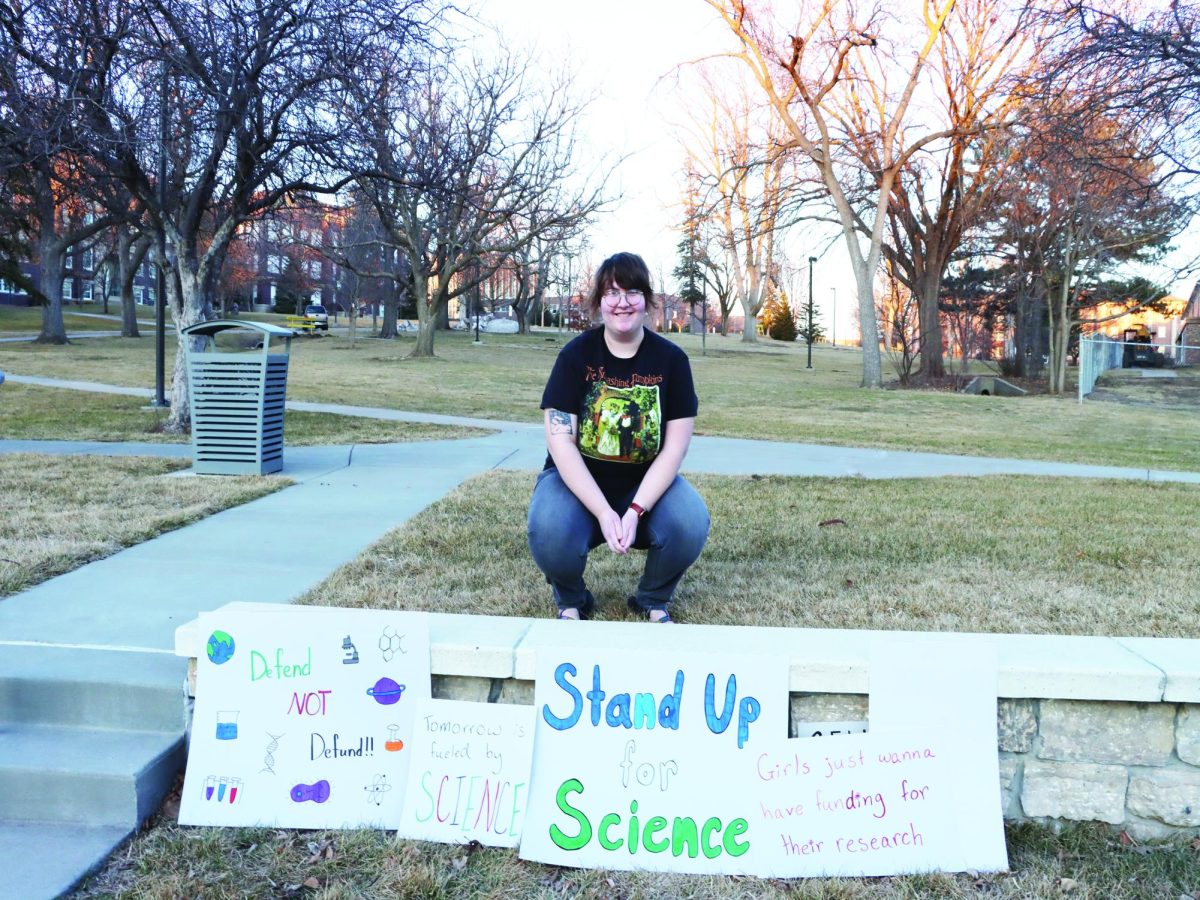‘Protecting Immigrant Students & Families,’ an event hosted by Wayne State College students in the Personal, Public, and Global Health course, was held on March 27 from 6-8 p.m.
This event was intended to raise awareness toward the dangers that immigrants can face. The event was planned to feature two guest speakers, Natali Markworth Ramirez and Magda Batiz Salazar, but due to last-minute changes, Salazar could not make it to the event. WSC professor Barbara Engebretsen stepped in instead.
Two flyers were distributed to each attendee. The first, ‘Protecting our Students,’ highlighted 15 ways educators and communities can help protect undocumented students and their families. The ‘Protecting our Students’ flyer was sourced from the American Federation of Teachers (AFT), a group of education, healthcare and public service workers dedicated to fighting for “Opportunity, Dignity and Respect for All,” according to aft.org.
The second flyer, ‘Protecting Your Immigrant Students,’ detailed key information about recent policies under President Trump’s administration, including the revoking of the ‘sensitive zone,’ designation for schools and churches.
The flyer, published by Educators for Excellence, a teacher-led organization that ensures teachers have a voice in policies impacting their students and profession, provided facts regarding recent policy changes.
One bullet point explained that ICE agents cannot enter schools or gain access to student records without a warrant signed by a judge, despite the revoking of ‘sensitive zones.’ Another bullet point highlighted Plyler v. Doe, a Supreme Court case which ruled that students have equal rights to access education, regardless of immigration status or national origin.
“You don’t need to speak the same language to understand what love is,” Natali Markworth Ramirez said. “Love is its own language in and of itself.”
Ramirez, the artistic director and co-founder El Proyecto Dramatico, Siouxland’s only bilingual theatre program, told the story of a woman named Maria and her difficult journey from Mexico to the United States. The story, based on true events, told of the hardships Maria endured on her search for a better life for her and her children. Ramirez told Maria’s story in three parts, and Dr. Engebretsen provided more information about immigration in between.
The first topic Dr. Engebretsen introduced was, ‘How do we know our neighbors?’ This topic introduced a ‘love thy neighbor’ theme and encouraged attendees to know their neighbors for more than their demographic.
Engebretsen next discussed ‘Health & Wellness of Children in Immigrant Families.’ Engebretsen explained how children can suffer traumatic events before, during, and after immigration.
“Investing in our children is the best way to ensure good health,” Engebretsen said.
Ramirez continued Maria’s story, explaining how the difficult journey bonded Maria, the only woman in the group of travelers, and the rest of the men. The brotherly protectiveness Maria’s companions gained throughout the 5-day journey showed through after Maria was sexually harassed by a man sent to drive the travelers. Maria’s newfound ‘brothers’ instructed her to sleep in the middle of the room, linked arms and legs, and threw their limbs over Maria to ensure her safety through the night.
Engebretsen next discussed the importance of focusing on the health of children during immigration. She encouraged attendees focus on the resilience of children, the potential of children when their needs are met, and the cruciality of focusing legal reforms on children’s safety.
Engebretsen also encouraged listeners to move on from the statement, “the system is broken,” when discussing immigration.
Members of the WSC concert choir sang “Thankful,” a ballad recorded by Josh Groban, towards the end of the event.
Food preceded the event and discussion followed. The speakers encouraged attendees to speak amongst their table groups, where students in the Personal, Public, and Global Health course were dispersed to prompt and aid conversation.







